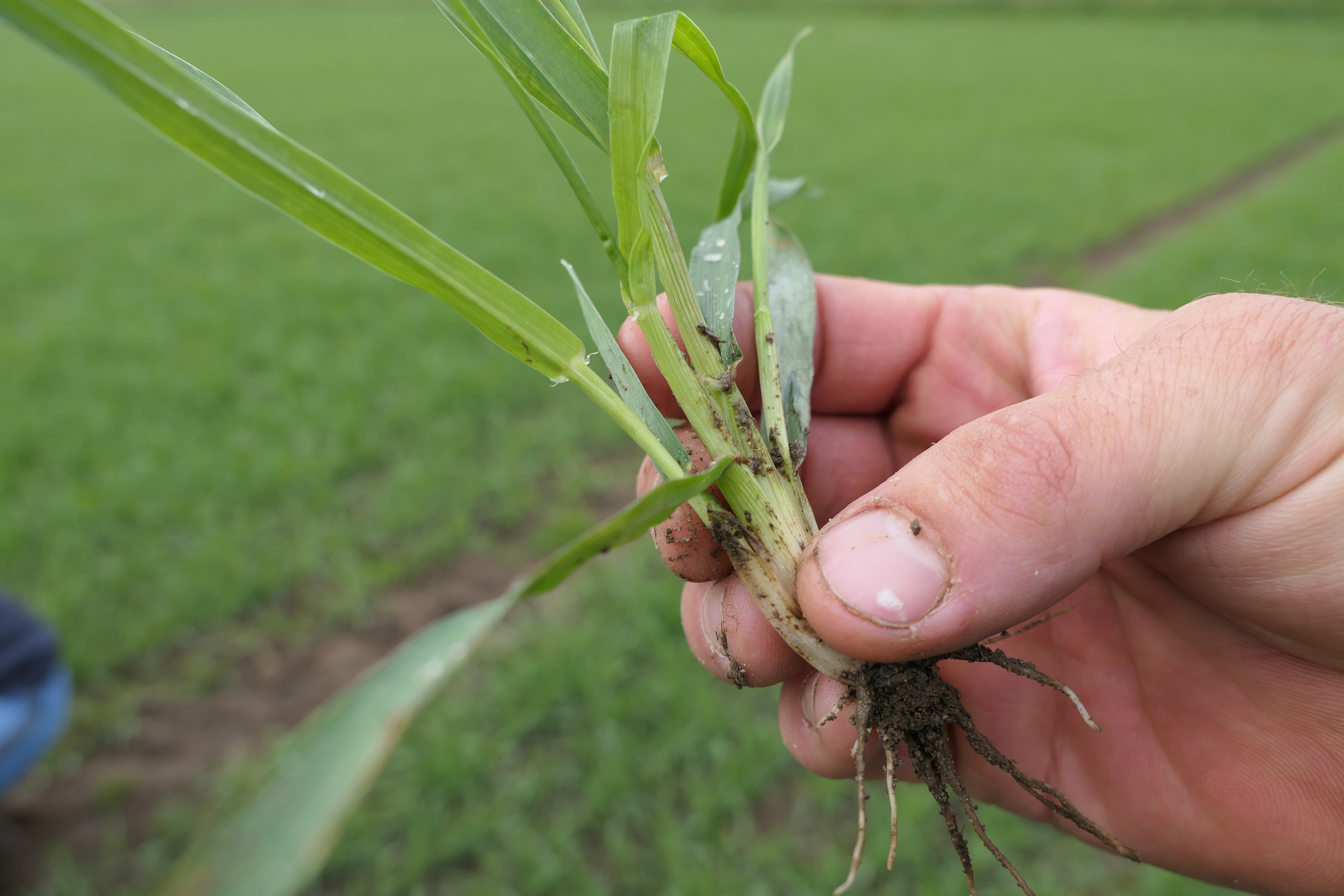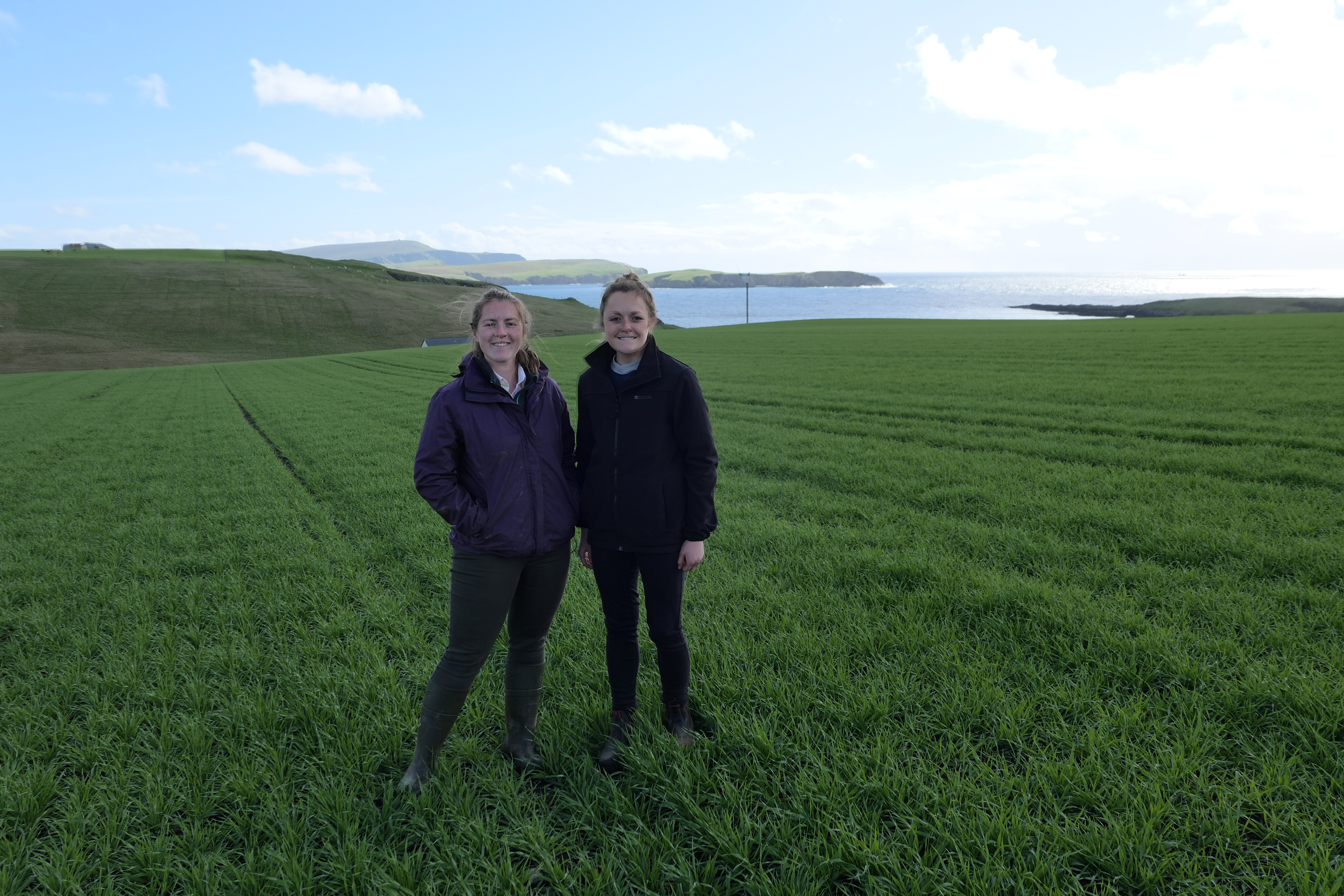Testing ‘virtual agronomy’ on new barley variety
Thursday, 18 July 2019
Could Scandinavian spring barley variety Salome be a viable option for commercial use in the malting sector?
The variety, chosen for its early maturity, is being grown this year by Scottish monitor farmers in Angus, Lothian and Shetland, in order to compare its performance in different regions and climates. The farms will grow Salome alongside existing varieties, such as Laureate and Concerto, to compare grain and spirit yields.
Jamie Leslie, Chair of the Shetland Monitor Farm Management Group, said: “In Shetland we can grow decent crops of spring barley, our long summer daylight hours mean we can maximise growth during these months.
“However when autumn appears, harvest can be extremely frustrating with short damp days therefore crop maturity is of the upmost importance. These is no point in growing a record breaking crop if it won’t ripen and you can’t cut it.
“During a recent AHDB-sponsored study trip to Sweden I was extremely impressed with the trial plots of Salome that were on display, they stood out amongst many other varieties some of which were familiar to us in the UK. I was really keen to try it and I hope it exceeds my high expectations.”

Jamie Leslie holds a sample of his Salome spring barley
AHDB Knowledge Exchange Manager Chris Leslie said: “Maltsters, brewers and distillers are concerned about the long-term sustainability of the barley crop. Seasonal problems in many parts of Europe resulted in a restricted malting barley supply that has only just been alleviated by an above average harvest in Argentina. Within the UK, drought conditions resulted in reduced barley crop quality, with higher protein levels.
“This project aims to bridge the gap between research and end user with a much more considered growing regime to create a niche within the Scotch whisky industry.”
The project is funded through the Monitor Farm Scotland programme, funded by the Scottish Government, and due to the diverse locations of the farms involved there will be a series of ‘virtual agronomy’ sessions to support crop management.
Chris explains: “Salome should ripen a week earlier than current favoured spring barleys such as Laureate which means we expect to see an increase in vigour and earlier use of key fungicides.
“At these critical timings we will host a virtual agronomy seminar with all the farms involved in the trial. Using tablets and 4G, the hosts will be able to walk their fields while discussing their crop with the other farmers in different locations as well as agronomists from SAC Consulting and Scottish Agronomy.
“At a time when product registration is becoming increasingly difficult it allows us to see first-hand the potential of new varieties in different locations in Scotland.”

Kirsty and Aimee Budge, hosts of the Shetland Monitor Farm, in their field of Salome barley
The project results will be shared after harvest.
Monitor Farm Scotland is a joint initiative managed by Quality Meat Scotland (QMS) and AHDB Cereals & Oilseeds. The aim of the programme, which is funded by Scottish Government, is to help improve the productivity, profitability and sustainability of Scottish farm businesses.
For more information about the Monitor Farm programme visit www.monitorfarms.co.uk or listen to the recent podcast episode on this topic.
Topics:
Sectors:
Tags:

